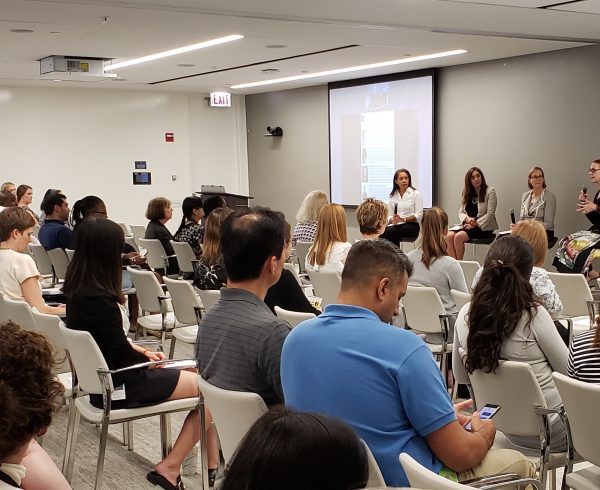While many aspects of life have started to return to some kind of “normal” following 16+ months of disruption from the COVID-19 pandemic, there are others, like travel, workplaces, and family dynamics, that are forever changed.
Like many working parents, when I look back on the past year and a half, my memories and emotions are a blur. While I was beyond grateful to remain healthy and employed, I had many days where I felt burned out like a charred piece of toast. I was regularly pushed beyond my sanity as I tried to balance work and my twin daughters’ online schooling, as well as handle the stress and anxiety of a global health crisis. I’ve heard so many similar stories, as well as much more stressful situations such as lost jobs, caring for immunocompromised relatives; the list goes on and on.
From my virtual coffees and conversations during recent McCann Partners roundtables and ARA events, pretty much every mom I know says that they struggled immensely in some way during the pandemic. In fact, working moms as a whole are looking at one of the biggest setbacks in decades.
Working Moms in Crisis
There’s no shortage of statistics out there on the current working moms crisis, but here are a few that particularly struck a chord with me:
- According to U.S. Census data, nearly 10 million U.S. mothers living with their school-age children were not actively working in January 2021 — that’s more than one-third of all mothers who have school-age children at home.
- The Marshall Plan for Moms, reports that 1 in 4 women are contemplating downshifting their careers or leaving the workforce entirely.
- The division of home labor during COVID hasn’t been equal among remote-working mothers and fathers — mothers were more likely than fathers to say they had a lot of child care responsibilities while working from home (36% vs. 16%).
These numbers are a lot to take in, and while our experiences all differ, one thing remains the same: society and companies need to do more to support moms. In the meantime, here’s some of the ways we as managers, leaders, co-workers, and friends can help moms regain their footing.
Encourage communication:
While we can’t all set up a voicemail hotline for moms to scream and vent their pandemic frustrations (I’m looking at you, The New York Times’ “Primal Scream” series), one way to alleviate the mental health burden for moms is to make a conscious effort to communicate. Whether it’s reaching out to a friend to check in or setting up quick touch points with a team member that focus solely on wellbeing, helping each other talk about what we’re facing can go a long way.
Eliminate shame:
There were many moments during the pandemic, where I felt like no matter what choice I made, I couldn’t win. If I sent my kids to school in-person while COVID was still an issue, I might be risking their health. If I kept them home, I might be risking my ability to excel at work. And on, and on, and on. While it’s easier said than done, one of the healthiest things we can do for ourselves, and for other working families, is to not pass judgment on the decisions we make. This is something that rings true even when we’re not in a global health crisis! We all do what works best for our situation, and respecting our choices, and those of others, helps to alleviate a cycle of judgement that risks dragging moms down even further.
Reach out to policy makers:
The last thing working moms need right now is a new to-do list item, but there are some quick ways we can contact those at the local, state, and federal level to consider policy changes that better support us. The Marshall Plan for Moms is a great example, and just by joining their mailing list, you can tap into the growing movement fighting for women during the economic recovery. Consider emailing or calling your representatives and sharing your thoughts and experiences with them, and let them know what policy changes would help you as a working mom; whether it’s mandatory paid parental leave, childcare support, or equal pay initiatives. Making your voice heard is always a good idea.
The crisis working moms faced during COVID is real — but unfortunately, it wasn’t entirely new. Working moms have long faced a litany of “no-win” choices, challenging professional dynamics, uneven support at home, unequal salaries and more. This line from a recent NPR story really stuck with me: “While the COVID crisis didn’t create the struggles that working mothers face daily, it has exacerbated them and made them more visible.” It’s such a powerful statement and reflection of where we stand. I’m hopeful that the light shone on the challenges for working moms during COVID extends long after the pandemic ebbs, with changes big and small making a difference for families everywhere.








